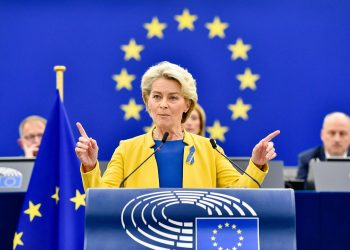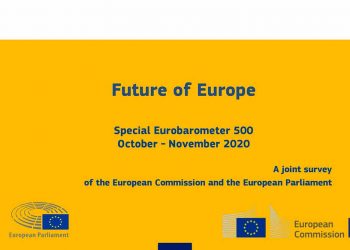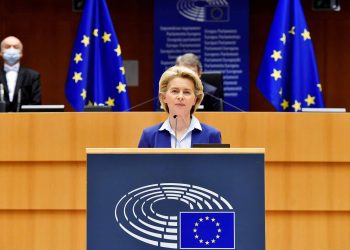The European Parliament Plenary moves to email voting during COVID-19 pandemic. An “alternative electronic voting procedure” has been agreed and the EP plenary session will have LIVE streaming. Parliament is holding this special plenary session so the first measures of the Coronavirus outbreak impact can be approved.
LIVE – Coronavirus global health emergency
EU Coronavirus emergency response makes EU parliament Plenary to vote online for first time ever. With Europe now at the heart of the COVID-19 pandemic, the EU and the European Parliament have vowed to do whatever it takes to stop the spread of the virus, ensure necessary equipment can be available and protect our economy.
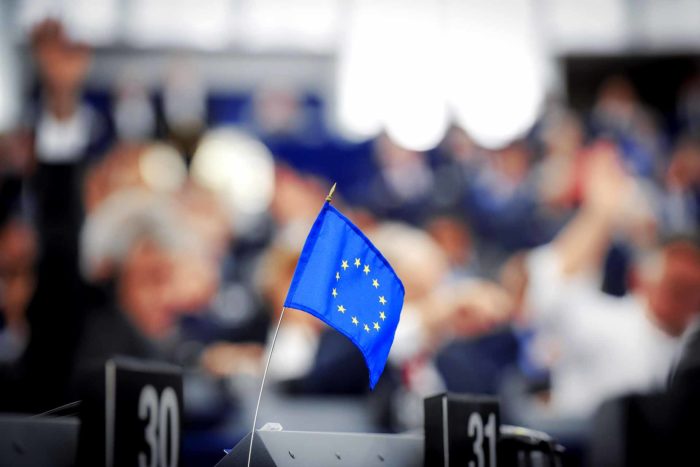
The Parliament is fully supporting unprecedented measures being taken by the EU to help member states deal with the pandemic and mitigate its effects. To play its part, the Parliament is doing everything it can to speed up the implementation of these initiatives. With Europe now at the heart of the COVID-19 pandemic, the EU and the European Parliament have vowed to do whatever it takes to stop the spread of the virus, ensure necessary equipment can be available and protect our economy.
EU Commission fights COVID-19
The measures announced by the Commission to address Covid-19 were welcomed by Parliament President David Sassoli. President Sassoli said the Parliament was committed to getting these measures approved as soon as possible.
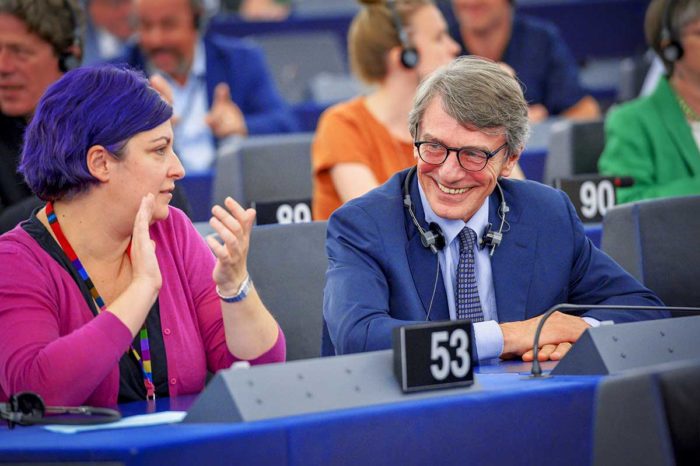
To save our countries, we must act together in Europe. We should do more. Today the watchword for Europe is solidarity. No one will be left alone and no one will act alone.
David Sassoli, President of the EU Parliament
LIVE online EP plenary
https://www.facebook.com/europeanparliament/videos/506587483362778/
The measure, proposed by the European Commission, is a key element in the EU response to the pandemic and has been fast-tracked through Parliament. During the session on 26 March, EU MEPs will debate and vote on the following measures:
- The Coronavirus Response Investment Initiative, which will make €37 billion from the Cohesion funds available to EU countries to address the consequences of the crisis.
- A legislative proposal to extend the scope of the EU Solidarity Fund to cover public health emergencies.
- A European Commission proposal to stop the so-called ghost flights caused by the Covid-19 outbreak.
These proposals need also approval by the EU Council in order to enter into force.
Email voting
The urgency procedure allows for a plenary vote without a report or with an oral report by the responsible committee.Normally MEPs would have to be present in order to vote, but because of the corona outbreak special measures have been adopted to enable them to vote remotely. The session on 26 March replaces the on originally planned for 1-2 April.
No virus can block democracy
In an effort to reduce the spread of the COVID-19 virus, Parliament Plenary is reducing the need for physical meetings on its premises, without compromising its role of democratic scrutiny. Also it shows the ability to approve the necessary legislative measures to combat the virus and support the public, consumers, businesses and emergency services.
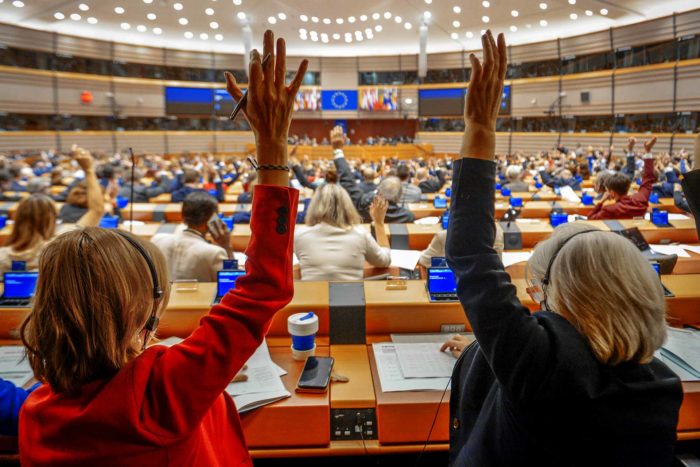
“Covid-19 obliges everyone to be responsible and to be cautious. It is a delicate moment for all of us. EU Parliament will continue to work to exercise its duties. No virus can block democracy.”
Coronavirus: Parliament Plenary to vote on €37 billion crisis response
The Commission proposes measures to:
- Ensure the necessary supplies to health systems by preserving the integrity of the Single Market and of production and distribution chains
- Support people so that income and jobs are not affected disproportionally and to avoid permanent effects of the crisis
- Support firms and ensure that the liquidity of the financial sector can continue to support the economy
- Allow EU countries to act decisively in a coordinated way, including by relaxing rules on state aid and support measures
- Support for regions
Part of the EU response will be to amend funding rules, which must be approved by both the Parliament and the Council. Parliament’s regional development committee aims to conclude its examination of the proposal as quickly as possible. The measure would mean it would be easier to channel funding to affected areas and sectors. Parliament’s budget committee also committed to deal with all initiatives to mitigate the impact of the outbreak as quickly as possible.
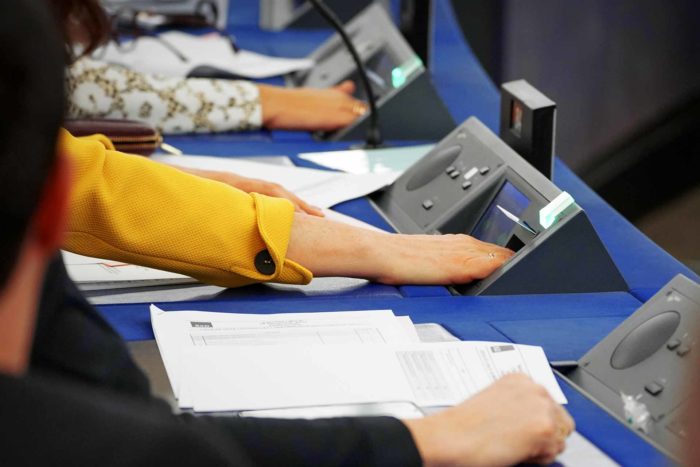
Where does the money come from?
The proposal concerns European structural and investment funds that support the development of regions, the fishing industry and social policy measures, such as retraining laid-off workers.
Every year member states receive money from these funds as pre-financing for projects. If some of the pre-financing remains unused, it returns to the EU budget the following year.
EU countries are due to return almost €8 billion in unused pre-financing for 2019, so the European Commission is proposing that they keep that money and use it for new projects mitigating the effects of the coronavirus crisis.
€37 billion crisis response
€8 bn unused + €29 bn EU co-financing
The Commission calculates €8 billion more in €29 billion of EU co-financing. That would make a total of €37 billion that could be deployed in investments across the EU. The €8 billion will be back at the closure of the programmes under the 2014-2020 budget, which might be around 2025.
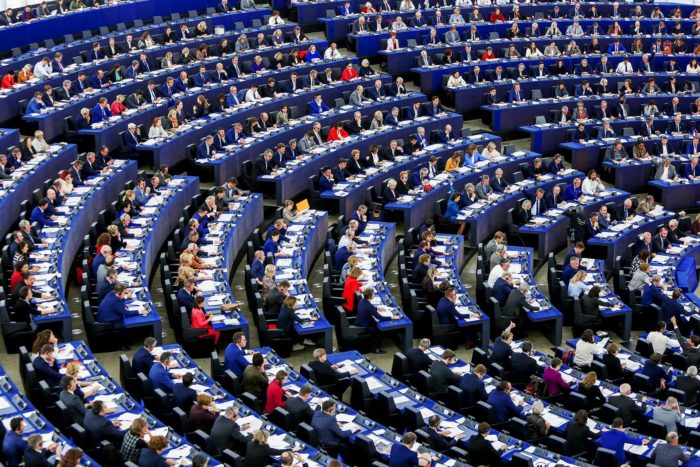
Staff – Teleworking
The parliament moved the majority of its staff to teleworking from 13th March. Members of the European Parliament have since switch to full remote work as confirmed cases of COVID-19 have continued to step up across Europe. Though how to handle voting remotely has generated some debate in and of itself.
Working in Brussels, without being in Brussels. European Parliament goes digital for #IMCO coordinators, @RenewEurope presidency & #EPbureau meetings. Next week voting remotely. Stay and work safe! pic.twitter.com/0weG9O7vow
— Dita Charanzová (@charanzova) March 20, 2020
Europe has now become the epicentre of the coronavirus pandemic. The European Parliament stands ready to support all necessary measures to combat the outbreak. Governments across the EU have taken unprecedented steps to slow the progress of the disease. Social distancing policies, like school closures, staying at home and avoiding crowds, are vital tools in the fight against the virus.
During the plenary session MEPs will also vote on other measures to tackle the coronavirus crisis, including a proposal to allow member states to request support from the EU Solidarity Fund in case of public health crises.


